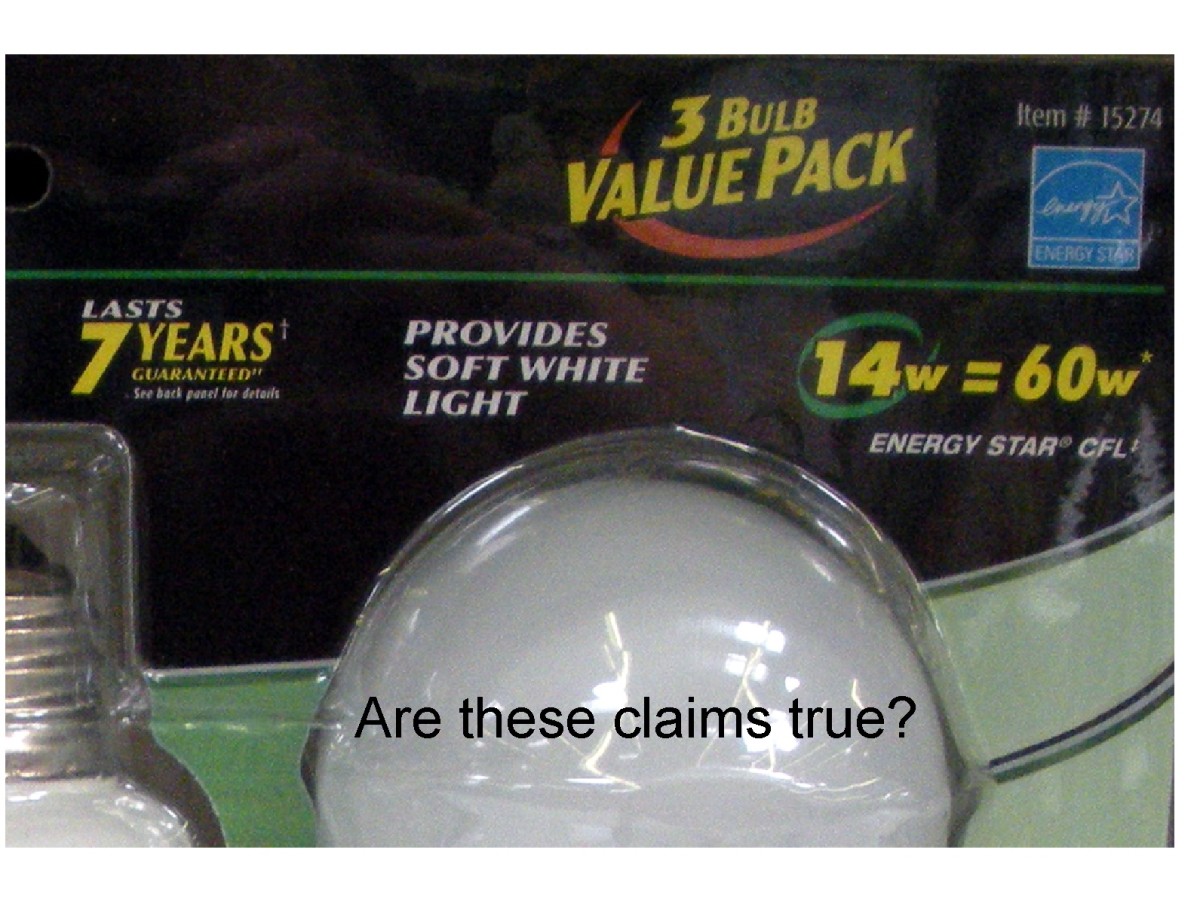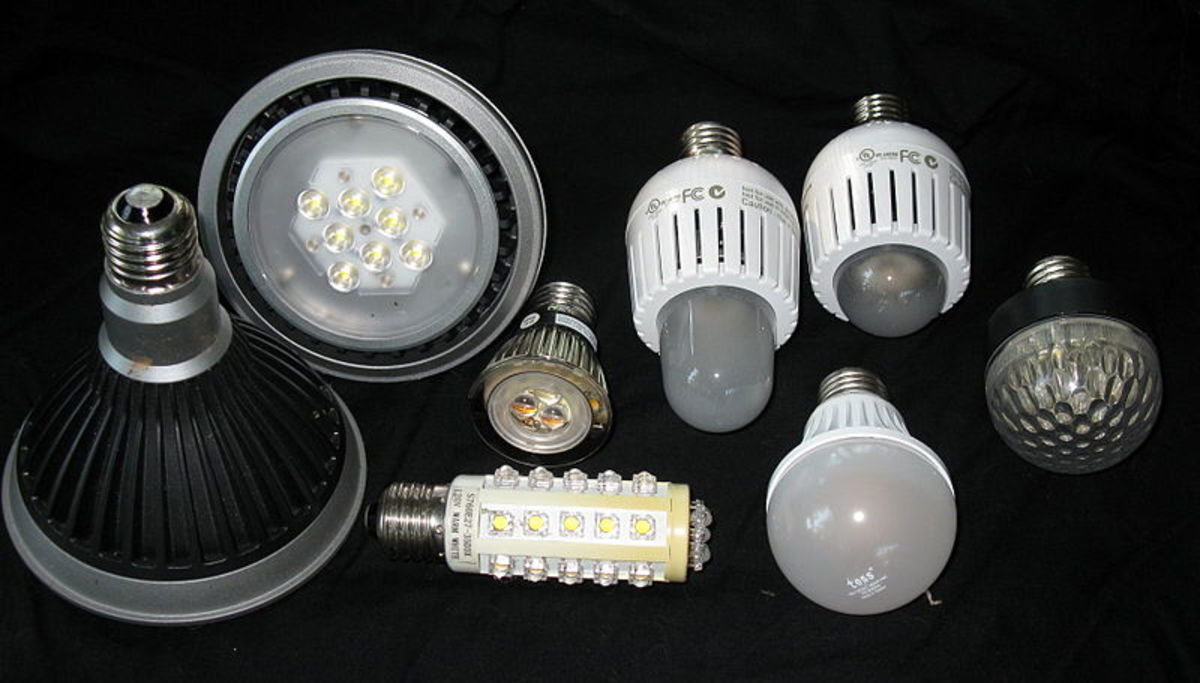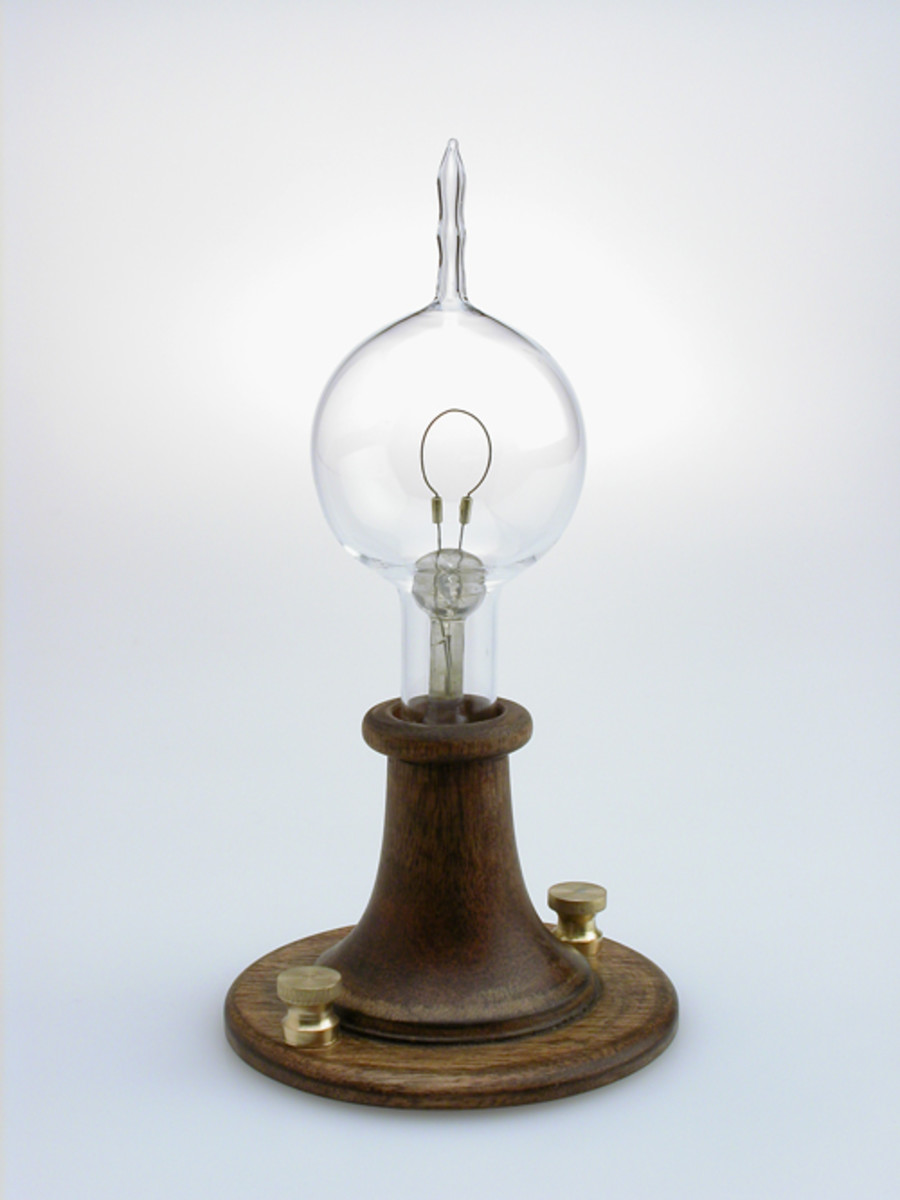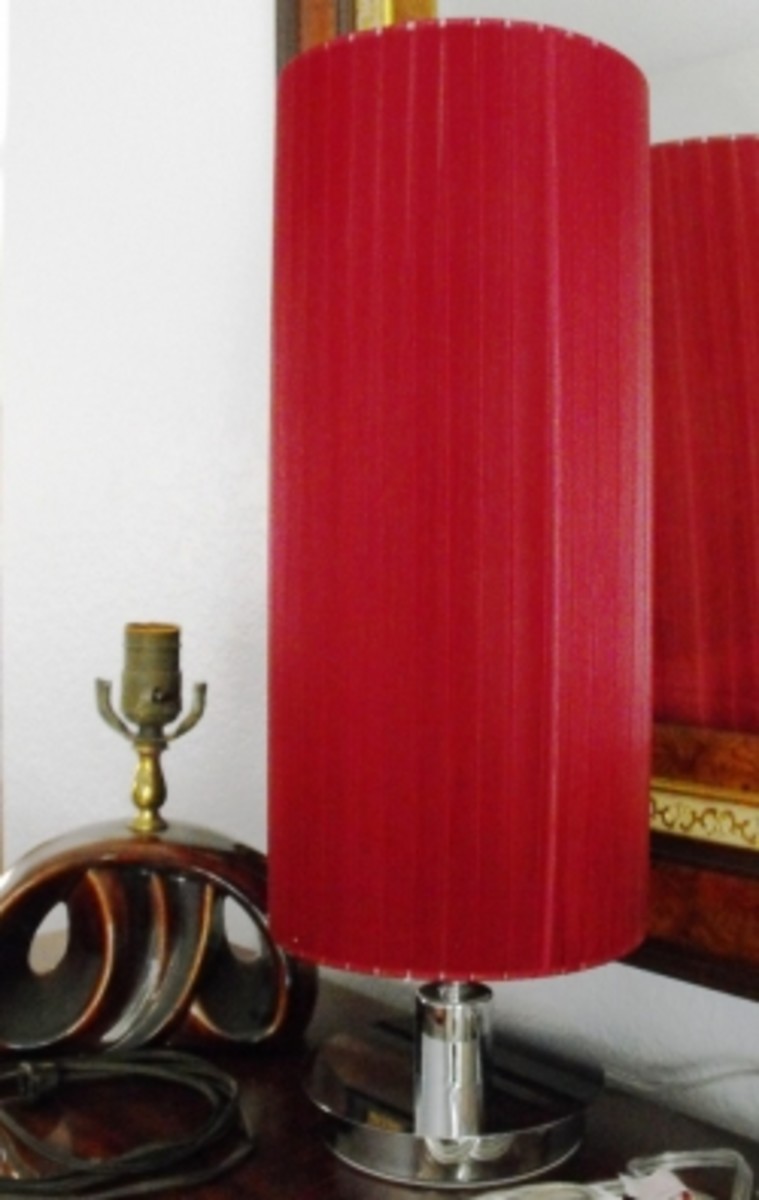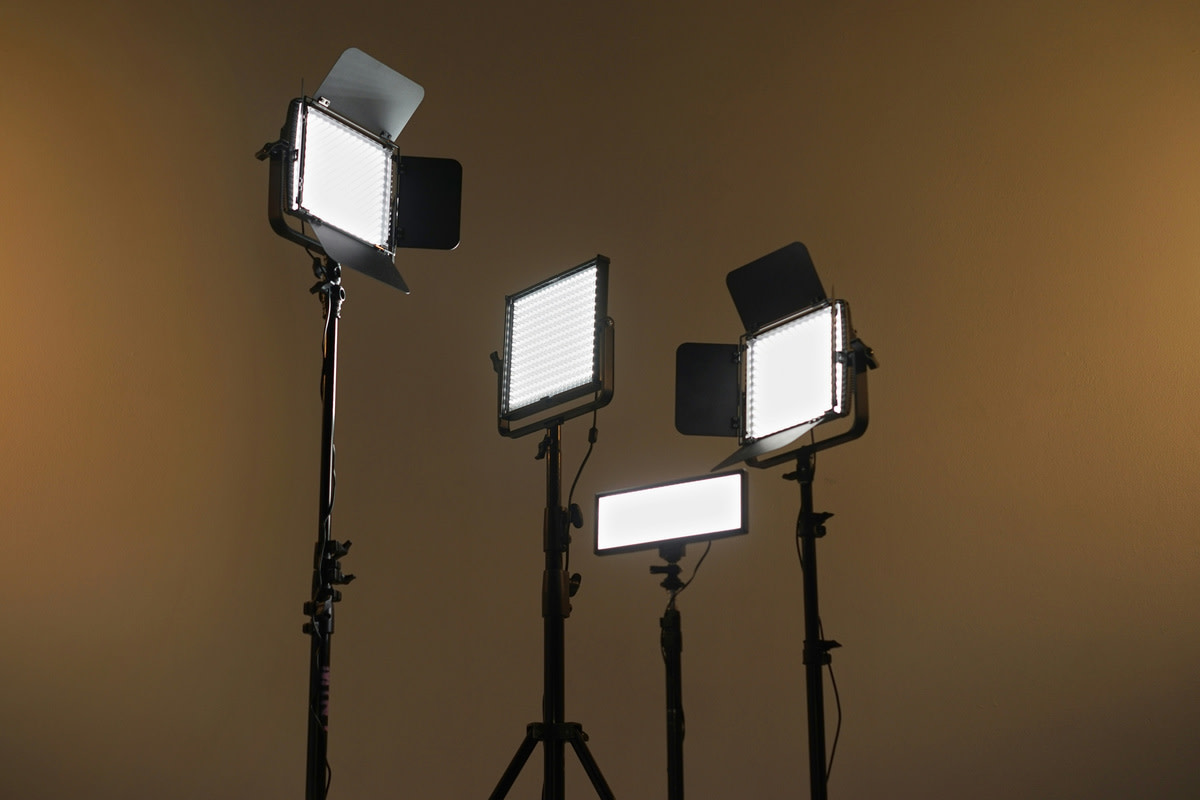Earthmate Compact Fluorescent Light Bulbs
Click here to Browse The Earthmate Range of Compact Fluorescent Light Bulbs on Amazon
The fluorescent light was invented by Peter Cooper Hewitt in the late 1890s and was used in photographic studios but the technology was never really developed until 1976 when Edward E Hammer invented a spiral tube compact fluorescent light bulb (CFL) for General Electric as a response to the 1973 oil crisis. General Electric, however, were shortsighted at the time and decided that the cost of converting their industrial processes to make CFLs was prohibitively high. Hammer’s design was leaked and over the 1980s and 1990s his CFL was improved upon. Key developments such as the electronic ballast that stopped the light flickering were quickly added to commercially available CFLs.
Demand for compact fluorescent light bulbs has lead to vast improvements in the design of CFLs and currently the best CFLs are made by Earthmate.
Earthmate compact fluorescent light bulbs last 13 times longer than an equivalent incandescent light bulb. Not only this, but Earthmate CFLs use 75% less energy than standard incandescent light bulbs.
The US Government sponsored Energy Star Program has done tests regarding the energy saving potential of CFLs. It has found that just changing 5 incandescent light bulbs to CFLs in an average house in the USA will save $100 a year. Wikipedia writes that lighting accounted for 9% of the total energy bill of an average US household in 2001 and that widespread use of CFLs can save as much as 7% of the total annual electricity bill for a US home.
There is the added benefit that CFLs give off less heat than standard incandescent light bulbs. Thus, in the summer CFLs reduce cooling bills because they don’t heat up a room as much as incandescent light.
These two savings more than make up for the extra cost of buying CFLs.
Environmental Issues Concerning CFLs
The only problem with CFLs is environmental. Compact fluorescent light bulbs contain mercury vapor. Mercury is a dangerous poison and the big environmental concern is that many CFLs around the world are disposed of in landfill sites and waste incinerators. Either of these methods of disposal releases mercury into the environment and will end up causing air and water pollution. Mercury is a heavy metal and builds up in the food chain until it is present in high enough doses as to be lethal. This process was frighteningly exemplified in Minamata in Japan. Methyl mercury was dumped with industrial waste water into the nearby bay. The mercury got in the food chain and passed from small marine creatures to fish and then to people, cats and dogs. The result was a number of people suffered from ataxia, numbness, reduced vision and in the worst cases insanity, paralysis, coma and death.
The Governments of both the UK and the US are well aware of this problem. It is now illegal in California, Minnesota, Ohio, Indiana, Michigan and Wisconsin to put CFLs in with the regular garbage. In the UK CFL disposal is subjected to WEEE recycling rules. Indeed it is now the case that part of the retail price of a CFL constitutes the cost of safely recycling used CFLs. And now Home Depot in the US is the first major retailer to offer CFL recycling.
The situation of mercury and CFLs is further complicated by the fact that burning coal releases mercury into the air. In states in America where coal is used to power electricity generators the environmental concern relating to mercury is much more focused on coal burning than inappropriate disposal of CFLs. Indeed if you take into account that the reduced electricity demand that results in using CFLs as opposed to incandescent light bulbs more than makes up for the small amounts of mercury found in CFLs. Less coal generated electricity means less mercury.
This is why Earthmate should be the CFL of choice for any consumer because it contains 75% less mercury than any other CFL on the market. Not only that but Earthmate uses only recycled paper for its packaging and soy based inks for its labeling.
Another advantage of Earthmate CFLs is that they make an extensive range of compact fluorescent light bulbs in a variety of watts and sizes. And also their CFLs fit standard light fittings so it is an easy matter to change over to CFLs.
To sum up, it is undeniable that compact fluorescent light bulbs use less electricity and last much longer than standard incandescent light bulbs. It is also undeniable that the mercury content in CFLs is a major concern for the environment. A concern that is being addressed in the developed world but one that is a potential threat to human and animal life in the developing world where nearly all waste ends up in a landfill.
More Green Hubs and sites
- The Importance of Re-Purposing
Imagine the world suddenly stopped producing new consumer items tomorrow. How would we survive? The answer is by re-purposing and upcycling. - How to Reduce Your Home Electricity Bills
The average family in the USA spends $2,200 a year on energy bills. A lot of these dollars are wasted. This article is about what you can do to reduce the waste in electricity use in your home. - Green Gift Ideas
it is often not easy to find a great present for a friend or family member. It seems there is so much choice and yet nothing really stands out. So why not try to buy earth-friendly products this year for the special people in your life? - Water Supply Crisis
1.3 billion people have no access to clean water and 2.5 billion lack adequate sewage or sanitation. The demand for water doubles every 20 years. At this rate, demand for fresh water will outpace supply by 50% in less than 20 years. - The Bamboo Shop
Best prices for bamboo home and garden products. Bamboo is a renewable resource that is great for mats, blinds, furniture, office equipment, kitchen ware and many other environmentally friendly products. - Planned Obsolescence
For many years big business corporations have tried unsuccessfully to keep secret a policy they have to build in a lifespan into their products. - Whole Trees Architecture
Whole Trees Architecture and Construction is a small company set up by architect Roald Gundersen and his wife Amelia Baxter that builds houses and garden structures made from whole trees. - Best Buy - The Honeywell RTH8500D or the Honeywell RTH7500D Programmable Thermostat
Both the Honeywell RTH8500D 7-Day Touchscreen Programmable Thermostat and the Honeywell 7-Day Conventional Programmable Thermostat are great programmable thermostats that can help you make big savings on your energy bills. - Are Feed-in Tariffs A Good Idea?
Since April 1st, 2010 people living in the UK are entitled to take advantage of a scheme that makes installing solar panels on your house or a wind turbine on your property much more affordable. - Guide to Programmable Thermostats
There are a large number of programmable thermostats on the market. Faced with all this choice it is hard to decide. So below Ive written a guide covering some of the key things you should consider before buying a thermostat. - About Coconut Flooring
Coconut flooring is a great example of sustainable flooring because it is made from a renewable resource. This makes coconut flooring more environmentally friendly than hardwood flooring. - Which is better - uPVC or Aluminum Windows
Environmental friendliness and energy efficiency clash in the battle of the window frames. - Best Thermostat - Honeywell RTH7500D or Lux TX1500E?
A review of which is the better the programmable thermostat - the Honeywell RTH7500D or the Lux TX1500E? - The Benefits of Installing a Honeywell RTH7500D Conventional 7-Day Programmable Thermostat
Click here to Browse the Full Range of Honeywell Programmable Thermostats on Amazon The US Department of Energy has estimated that the average household in America spends $2,200 a year on heating and cooling... - The Problem With Trying to Legislate a Revolution
The most important ideology to emerge over the last few years is environmentalism. The Green movement has progressed since the early 1980s when the first successful Green party appeared in Germany. The... - Conflicting Green Issues
Green is the new black. Everything should be green and environmentally friendly. Sustainability, recycling, off-setting, renewable energy, environmental certification, local sourcing and carbon footprint are... - Green Cleaning: alternatives to normal detergents
It is hard to be as happy as the woman above when you have a mountain of laundry to do. Even with a washing machine it often seems a chore. The modern housewife relies on technology to help make her life... - Buy Cork Flooring
Cork is perhaps the most environmentally friendly flooring type available for purchase. Cork like bamboo, rattan, jute, hemp and water is a renewable resource. - Why You Should Buy Reclaimed Hardwood Flooring
One and a half acres of rain forest are lost every second. That is, to put it mildly, an unsustainable rate of consumption of the planets most necessary species of flora. Without trees the planets... - Why Do So Many People Have Allergies
Click here to browse Amazon for books about allergies and remedies to allergies. When I was a child I remember very few people had allergies or asthma. Now it seems everyone around me has either an allergy or... - Act Now To Stop Another Oil Spill Disaster
Watching the scenes of the devastating oil spill in the Gulf of Mexico has surely made many people realize the risks and hazards the world faces in maintaining its present addiction to oil consumption. - Eimann Fabrik VOC Free Engine Degreaser
'Low VOC', 'zero VOC' and 'VOC free' are new buzz phrases in the green blogosphere that have yet to be come fully mainstream. Most commonly the appellations are given to paints, adhesives, varnishes and paint... - Before You Buy a Hardwood Floor Consider This
Before you buy a hardwood floor you should consider the future health of the planet. Every second an acre and a half of rain forest is cut down. In 40 years there will be no rain forests left. - What is Green Interior Design
We all have some idea about what interior design is. It is about creating a look for the interior of your house. Green Interior Design is very different. - Honeywell RTH8500D 7-Day Touchscreen Universal Programmable Thermostat
The U.S. Environmental Protection Agency and the U.S Department of Energy have made a series of standards to make products more energy efficient. Those products that excel in meeting or surpassing these standards. - Why You Should Buy Reclaimed Oak Flooring
Oak trees are become rarer and rarer. Because trees of the quercus genus are so useful, beautiful and strong they are too prized. Oak trees are being rapidly depleted around the world because oak is such a...


